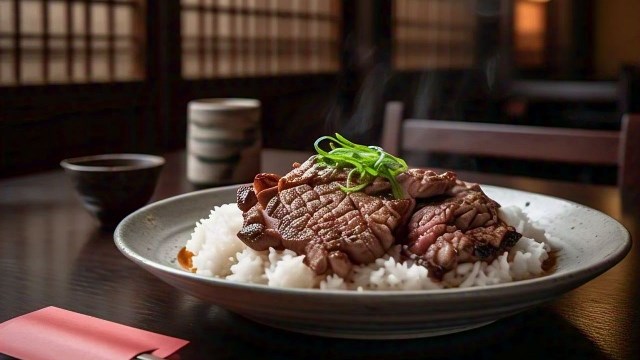Last Updated on December 31, 2024 by Dr. Abadullah Sajid Bashir
Irritable Bowel Syndrome (IBS) is a common yet distressing digestive disorder that impacts the lives of many individuals. Patients with IBS must manage their diet carefully to prevent triggering symptoms. A recurring question among IBS sufferers is whether consuming meat-based rice at night can worsen their symptoms. Let’s dive into the details and find out.
Understanding IBS and Its Symptoms
IBS is a disorder of the digestive system characterized by a range of symptoms, including:
- Abdominal pain
- Cramping
- Gas
- Diarrhea
- Constipation
Although IBS is not life-threatening, it can significantly affect the quality of life. Patients often feel persistent discomfort and must make careful choices regarding their diet and lifestyle to minimize symptoms.
The Role of Diet in Managing IBS
Diet plays a crucial role in managing IBS symptoms. Patients are advised to avoid foods that can irritate the gut, such as spicy, greasy, or overly processed meals. Eating habits also matter; for instance, eating heavy meals late at night can trigger symptoms, making it important for patients to plan their meals wisely.
Why Meat-Based Rice at Night is Problematic for IBS Patients
- Heavy and Spicy Nature of the Dish
Meat-based rice dishes, particularly those containing red chili and onions, are heavy on the digestive system. These ingredients are known to irritate the gut lining, especially for individuals with IBS. Eating such dishes before bedtime can lead to discomfort and trigger IBS symptoms. - Triggering IBS Symptoms
Consuming meat-based rice at night often results in:
- Persistent gas
- Abdominal discomfort
- Disrupted sleep
During the late hours, these symptoms can worsen, waking the patient and making it difficult to fall asleep again.
Common Patient Experiences
Many IBS patients report that consuming spicy rice dishes at night causes their symptoms to flare up. They frequently experience abdominal pain, bloating, and gas. Even after spending prolonged time in the washroom, the discomfort may not subside until the food is entirely cleared from their system.
Tips to Alleviate Symptoms After Eating Meat-Based Rice
If you’ve consumed meat-based rice and are experiencing IBS symptoms, here are some remedies to provide relief:
- Drink Warm Water
Warm water helps stimulate the digestive system and can ease discomfort. It also aids in clearing the bowels, which is essential for reducing symptoms. - Use a Hot Water Bottle
Applying a hot water bottle to your abdomen can provide significant relief by relaxing abdominal muscles and reducing cramping. - Avoid Medications at Night
Unless prescribed, it’s better to avoid taking medications during the late hours. Focus on natural remedies like hydration and gentle heat therapy. - Clear Your Bowels
Symptoms will persist as long as the consumed food remains in the digestive system. Ensuring the bowels are cleared can provide immediate relief.
Preventing IBS Symptoms: What to Avoid
To manage IBS effectively, patients should:
- Avoid heavy meals late at night.
- Steer clear of spicy, greasy, or highly seasoned dishes.
- Opt for lighter, easily digestible foods in the evening.
- Maintain a consistent eating schedule.
A Note on IBS Management
Efforts are ongoing in the medical field to identify the root causes of IBS. While the primary cause is still unknown, one thing is clear: managing IBS requires a proactive approach. Patients should focus on:
- A healthy, balanced diet tailored to their condition.
- Lifestyle adjustments, including stress management.
Regular consultation with healthcare professionals.
For IBS patients, eating meat-based rice at night can be detrimental, leading to symptoms like gas, abdominal discomfort, and disturbed sleep. By understanding their triggers and making mindful choices, patients can significantly reduce their symptoms and lead a more comfortable life.
If you’re dealing with IBS, it’s important to stay informed and consult with medical professionals. Remember, while IBS isn’t life-threatening, it is a chronic condition that requires careful management.
Need more information on managing IBS? Stay tuned to our blog for expert advice and tips!
Reviewed By:
- Dr. Muhammad Zubair Chaudhary
- Syeda Noor-ul-Ain Naqvi
For Reviewer Detail Click Here

